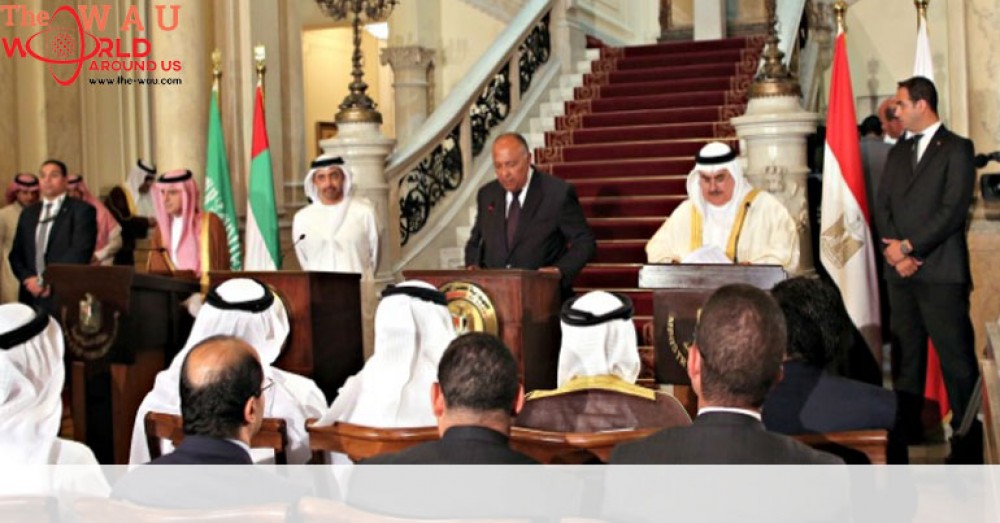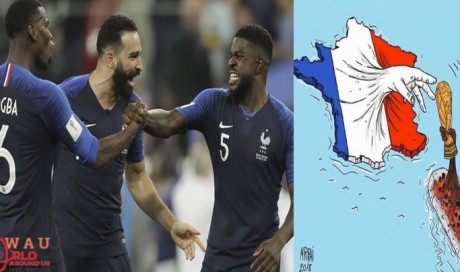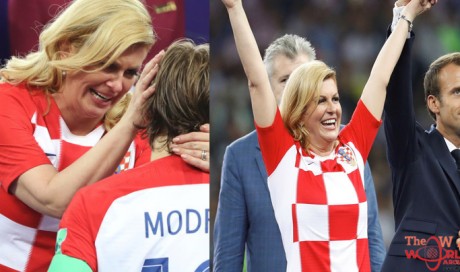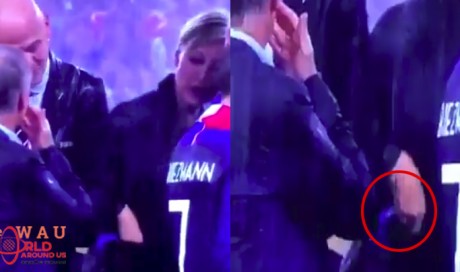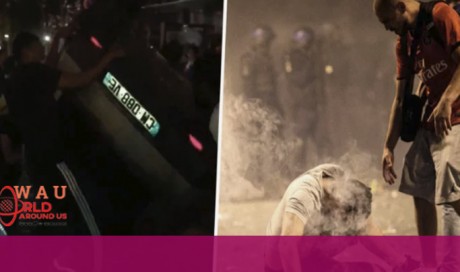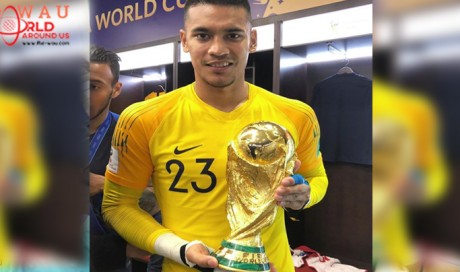The simultaneous presence in Russia of the Saudi and Iranian teams for the 2018 World Cup is likely to shine a spotlight on the covert wars between Saudi Arabia, the United Arab Emirates, and Iran, as well as a related dispute over 2022 World Cup host Qatar, which did not qualify for this year’s tournament. Tensions will be present even if the Saudi kingdom and the Islamic Republic fail to meet face to face on the pitch.
A possible Saudi-Iranian clash on the soccer field promises to be a highlight of the World Cup, which began in Russia on June 14. It would add significant drama to multiple soccer-related battles involving Saudi attempts to control Middle Eastern and Asian governance of the sport at the expense of Iran, as well as its challenges to Qatar’s 2022 hosting rights and its holding of World Cup broadcasting rights. These battles threaten to deprive Gulf fans of access to the Russian tournament’s matches.
This month commemorates the imposition one year ago of a diplomatic and economic embargo by Saudi Arabia, the UAE, Bahrain, and Egypt on Qatar, in part because of the Gulf state’s relationship with Iran.
Gulf fans are already feeling the impact of uncertainty over whether the boycotting states will allow broadcasts of matches by BeIN, the sports subsidiary of the Qatar-owned Al Jazeera television network, which owns the broadcasting rights. The boycotting states are demanding that Qatar shutter Al Jazeera or at least curb its freewheeling reporting and talk shows, which often challenge the policies of countries like Saudi Arabia and the UAE.
BeIN has been blocked in the boycotting states for the past year. While Saudi Arabia has sought to keep the ban in place by creating beOutQ, a 10-channel bootlegging operation based in the kingdom, the UAE has backed down from its initial blockage of BeIN broadcasts but maintained its jamming of Al Jazeera.
In the soccer-crazy Middle East, the sport arouses a deep passion similar to that stirred by religion and nationalist sentiment. Depriving viewers in the region of access to World Cup broadcasts is thus a serious matter.
Unable to challenge the Saudi action in Saudi courts, Qatar has urged world soccer body FIFA to take steps against what it describes as Saudi pirate broadcasters. Qatar also appears to have decided to stir the pot by blocking BeIN broadcasts to the UAE.
“We regret to inform that our customers are temporarily unable to view BeIN sports channels and packages as a result of a decision by the broadcaster of BeIN sports,” UAE telecom and digital television company Du said in a statement on its website.
Qatar’s move appeared to be designed to force UAE carriers to accept commercial terms. In so doing, it would score a political success by breaching the boycott.
Its strategy appeared to have an effect on Du’s competitor Etisalat, which announced 24 hours after the Du statement that customers could sign up for BeIN broadcasts of World Cup matches.
The dispute reflects deep-seated disagreement in the lame-duck six-nation Gulf Cooperation Council (GCC) over the campaign against Qatar. Oman, which like Qatar maintains close ties to Iran and has offered to mediate, sought to thwart the Saudi bootlegging effort by banning the import of beOutQ decoders.
“The import of these decoders, called beOutQ, was banned because they violate the law on intellectual property,” an Omani official said. Oman was responding to a Qatari request.
Qatar’s broadcasting rights are only one soccer battlefield on which the Gulf dispute is being fought.
Saudi and UAE media, together with UK tabloid The Sun, exploited the recent London launch of the Foundation for Sports Integrity by Jamie Fuller, a prominent Australian campaigner for a clean-up of global soccer governance. The launch involved a reiteration of assertions of Qatari wrongdoing in its successful World Cup bid that media outlets like Abu Dhabi’s The National and Saudi Arabia’s Al Arabiya projected as pressure on FIFA to deprive Qatar of its hosting rights.
“It is no secret that football’s governing body is rotten to the core. (FIFA) will rightly come under renewed pressure to strip Qatar of the competition and carry out an internal investigation in the wake of the most recent allegations. The millions of fans eagerly anticipating 2022’s festival of football deserve better,” The National said.
The Saudi-owned Asharq Al-Awsat newspaper reported that this month’s FIFA Congress may hold a re-vote on Qatar’s hosting of the 2022 World Cup. But there is no independent confirmation of such a move.
In a further bid to complicate life for Qatar, Saudi Arabia has backed a proposal to speed up the expansion of the World Cup to 48 teams from 32 — now scheduled for 2026 — by making it applicable to the 2022 World Cup.
If adopted, Qatar could be forced to share the hosting of the 2022 tournament with others in the region. Iran has already offered to help Qatar.
The Saudi-UAE moves come on the back of a two-pronged Saudi effort to gain a measure of control over global soccer governance.
Global tech investor Softbank, which counts Saudi Arabia and the UAE among its largest investors, is believed to be behind a $25 billion proposal embraced by FIFA president Gianni Infantino to revamp the FIFA Club World Cup and launch a Global Nations League tournament. If approved, the proposal would give Saudi Arabia a significant voice in global soccer governance.
Complementing the Saudi FIFA bid is a Saudi effort to undermine the position of the 47-nation Asian Football Confederation (AFC) headed by Salman Bin Ibrahim Al-Khalifa, a member of the Bahraini ruling family and one of the most powerful men in global soccer.
...[ Continue to next page ]
Share This Post

